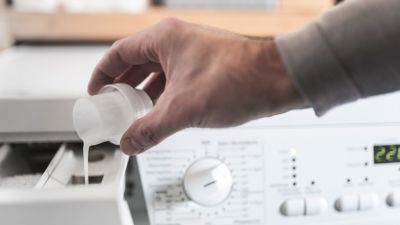The High Court has ordered the extradition to France of a forger and weapons trafficker who fled to Ireland over 20 years ago after being convicted of Islamic terrorism offences.
The High Court previously heard that father-of-four Youcef Madani, who was in receipt of medical disability here for partial blindness, was an "expert in false paperwork" who "specialised" in fake passports. It was also discovered that Madani was in the process of becoming an Irish citizen.
In delivering judgement on Thursday, Mr Justice David Keane rejected arguments by barristers for the 54-year-old Algerian national, with an address at Firhouse in Tallaght, Dublin 24, that the respondent should not be extradited due to the risk that he could suffer “inhuman or degrading treatment” in French prisons.
Mr Justice Keane said that information provided by the French justice minister showed there was no basis to assume that any deficiency exists for the majority of inmates and there was no reason to believe the respondent would be exposed to such treatment.
The judge further rejected the argument that the French prosecutor did not have the judicial authority to issue an arrest warrant, saying that the French anti-terrorism prosecutor is a lawful authority.
Forged documents
Madani is wanted in France having been convicted in his absence in 2001 and sentenced to six years’ imprisonment for his participation in a terrorist organisation.
The offence related to activities between 1996 and 1998 where he forged identification documents for immigrants from Algeria and was also involved in trafficking weapons from the Netherlands.
He registered with immigration services in Ireland in 2002 and was arrested by gardaí in 2021 after he appeared on the Schengen Information System under the name of 'Abderrahmane Yahiaoui', which was the name he used when he lived illegally in France.
He previously appeared before the High Court where his barrister said he should not be extradited because of the conditions in the Paris prison where he will be sent.
Mr Justice Keane, who said he was obliged to refer to the respondent as Abderrahmane Yahiaoui, also rejected the argument that the respondent’s right to a fair retrial would not be met if he were returned to France.
The judge said this was “a bare assertion” and that once surrendered, the respondent would be able to have his case fully re-examined and he could then appeal any new conviction.
Mr Justice Keane went on to reject the argument that the offence the respondent was convicted of had been committed in a place other than France as the offence related to activity in both France and the Netherlands.
Mr Justice Keane said all the acts had been committed in Marseilles in France and the Netherlands.
Trafficked weapons
He said the respondent had been convicted of one act of terrorism, which involved his participation in “a hardcore movement” in Marseilles with an armed Islamic group where he forged documents before he trafficked weapons from the Netherlands after taking refuge there.
As the offence had been committed at least in part in France, Mr Justice Keane said this argument must fail.

He next rejected the argument that there was no clarity on the number of offences the respondent had been convicted of. He said information had been sought from the French authorities that confirmed the respondent had participated in a terrorist organisation and been convicted of one single offence.
The judge also rejected any argument that the respondent would be deprived of medical treatment. He noted that the respondent was on disability benefits and had a prosthetic eye, arthritis, and cancer of the skull. He said the court was not satisfied that the respondent would be deprived of any treatment while in detention.
The final argument rejected by Mr Justice Keane was that the period of detention would violate the respondent’s rights to a family life as covered by Article 8 of the European Convention on Human Rights, which deals with the right to respect for private and family life, home and correspondence.
In conclusion, Mr Justice Keane said he was making an order directing the surrender of the respondent to the French authorities. He remanded him on continual bail with the condition that he surrender himself to the gardaí when contacted.







